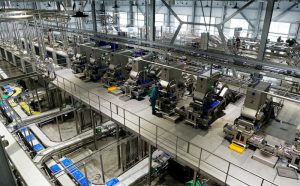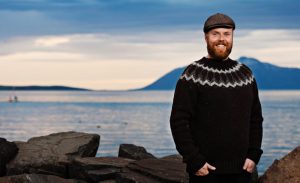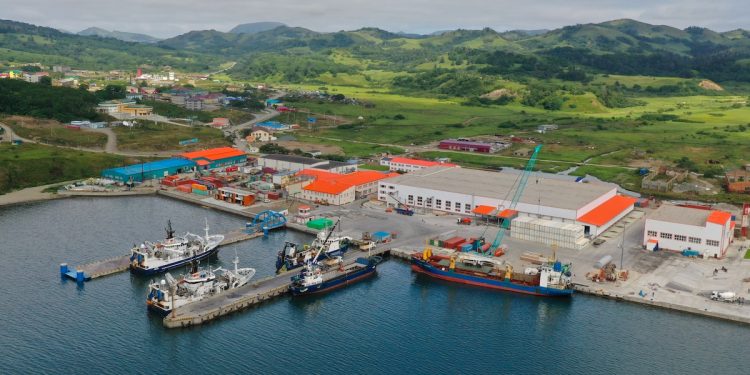Earlier today Russian president Vladimir Putin set JSC Gidrostroy’s sophisticated new pelagic processing plant on the island of Shikotan running. During the current Far East Economic Forum in Vladivostok, he pressed the button to remotely start the factory’s operation.
President Putin was joined by Gidrostroy founder and chairman Alexander Verkhovskiy, who established the Kuril Island-based company in 1991 and has turned it into one of Russia’s largest pollock harvesters and processors.

The new processing plant has the capacity to grade, pack and freeze 900 tonnes of pelagic fish per day. Behind the new factory is a set of innovative systems supplied by an Iceland group headed by technology specialist Skaginn 3X and its partners Frost and Rafeyri.
‘At Skaginn 3X we are extremely proud to have been given the opportunity to participate in the modernisation of Russia’s fisheries sector, exporting and transferring a 15-year legacy, knowledge and innovation in the pelagic sector,’ said Skaginn 3X’s Russian regional manager Pétur Jakob Pétursson.
‘Our solution will maximise automation, product handling and quality – triggering a competitive advantage that will undoubtedly result in increased demand and value.’
The 9000 square metre factory will be the largest and most automated pelagic fish processing plant in the region and is expected to lead to the creation of new jobs, while streamlining processes and reducing waste.
With the innovative freezing technology improving overall product quality, Gidrostroy anticipates that the demand for its fish from mainland Russia and China will steadily increase.

At the signing ceremony last year, Alexander Verkhovskiy said that he expected that the new factory would bring more jobs and development to Shikotan Island and after conducting talks with various technology providers around the world, it was an ‘obvious choice to work with the Icelandic companies.’
Gidrostroy is a unique fisheries company with deep roots and a strong sense of social responsibility in the Kuril Islands where it employs 3600 people, with additional 1500 seasonal jobs. The company’s fleet catches around 300,000 tonnes annually and Gidrostroy was the first Russian company to achieve Marine Stewardship Council (MSC) certification.
Skaginn 3X has also provided the technology for the Vardin and Pelagos processing plants in the Faroe Islands, the Eskja factory in Iceland, which is right now producing 900 tonnes per day, and a seagoing system for France Pélagique is expected to be completed before the end of 2019, with a comprehensive catch handling system for grading, packing, freezing and palletising the new vessel’s catch.
Skaginn 3X’s Russian regional manager Pétur Jakob Pétursson









